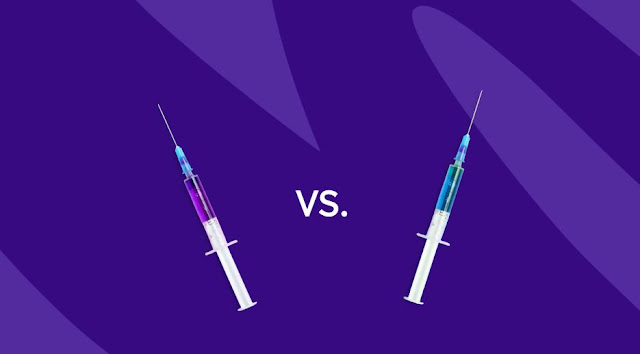Type A and type B influenza viruses are two different subtypes of the flu virus that can cause respiratory illness in humans. Here are some differences between the two:
Genetic makeup: Type A influenza viruses have a segmented RNA genome, which means that they can undergo genetic reassortment and create new strains. Type B influenza viruses have a non-segmented RNA genome, which limits their ability to create new strains.
Severity: Type A influenza viruses are generally more severe and have a higher potential to cause pandemics compared to type B influenza viruses, which usually cause milder illness and do not cause pandemics.
Host range: Type A influenza viruses can infect a wide range of animal species, including birds, pigs, and humans, while type B influenza viruses only infect humans.
Seasonal occurrence: Type A influenza viruses are more likely to cause seasonal epidemics, while type B influenza viruses can cause outbreaks, but are less likely to cause widespread epidemics.
Antigenic drift: Both type A and type B influenza viruses undergo antigenic drift, which is the gradual accumulation of mutations in the viral genome that allow the virus to evade the immune system. However, antigenic drift occurs more frequently in type A influenza viruses, making it more difficult to predict and prevent.
In summary, type A and type B influenza viruses have several differences in their genetic makeup, severity, host range, seasonal occurrence, and antigenic drift. However, both types of viruses can cause significant illness and should be taken seriously.
Psychologists and psychiatrists are both mental health professionals, but there are some key differences between them:
Education and training: Psychologists typically have a doctoral degree (Ph.D. or Psy.D.) in psychology, which involves a minimum of five to seven years of graduate study, including supervised clinical training. Psychiatrists, on the other hand, are medical doctors (M.D. or D.O.) who have completed medical school and then completed a four-year residency in psychiatry.
Approach to treatment: Psychologists use a variety of techniques to treat mental health issues, such as talk therapy, cognitive-behavioral therapy, and psychoanalysis. They cannot prescribe medication but may work in conjunction with a psychiatrist who can prescribe medication. Psychiatrists, on the other hand, primarily use medication and psychotherapy to treat mental health issues.
Focus of treatment: Psychologists typically focus on helping clients understand and change their thoughts, feelings, and behaviors to improve their mental health. Psychiatrists typically focus on treating the biological and neurological aspects of mental illness, such as chemical imbalances in the brain.
Cost: Psychologists typically charge less per session than psychiatrists because they do not have to pay for the costs associated with a medical degree.
In summary, psychologists and psychiatrists both provide mental health treatment, but they differ in their education and training, approach to treatment, focus of treatment, and cost. The choice between a psychologist or psychiatrist will depend on the individual's specific needs and preferences.

Comments
Post a Comment